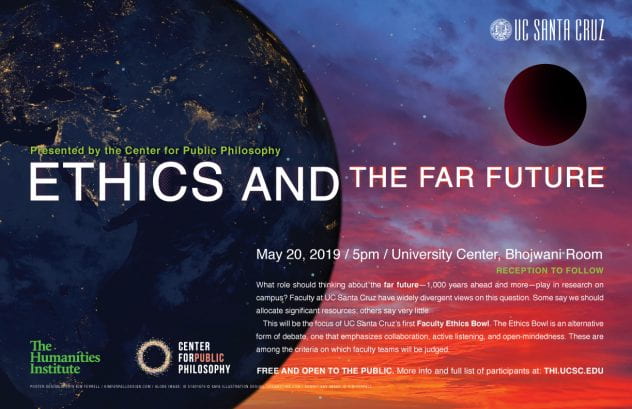When/where: E2-215 at 12pm
Presenter: David Haan (PBSE)
LURE (Learning UnRealized Events): Finding New(or Equivalent) Driver Mutation Events using Supervised Machine Learning
Cancer is a genetic disease typically resulting from an accumulation of mutations. Mutations in normal cells generally result in repair or cell suicide. In cancer cells, the mutations accumulate leading to an uncontrolled growth otherwise known as a tumor. There are two broadly defined types of mutations, driver and passenger mutations. Tumors contain around 2-5 driver mutations which cause and accelerate cancer, and about 10-200 passenger mutations which are accidental by products and result of thwarted DNA repair mechanism. The driver mutations are what defines the tumor, subtype and are therapeutic targets.
The Cancer Genome Atlas (TCGA) is a publicly accessible atlas of cancer related data from the National Cancer Institute (NCI). This atlas of data is a comprehensive analysis of 9000 patients and 33 cancer subtypes cataloging mutation data, DNA, mRNA, methylation, and protein expression. In particular, the TCGA study of Papillary Thyroid Carcinoma identified two subtypes, one harboring mutations in BRAF and the other were more RAS-like with mutations in KRAS, NRAS, HRAS. The study identified driver mutations, whether BRAF or H/K/NRAS, in about 95% of the samples, leaving about 5% with no known driver mutations. Here we present a tool, “Learning UnRealized Events” (LURE) designed to identify driver mutations in those samples without known driver mutations.
Where/when: E2-215 at 12pm
Presenter: J. Xavier Prochaska (Astronomy & Astrophysics)
Title: Activation Atlas
Abstract: While it remains conventional wisdom that Deep Learning techniques are primarily the result of impenetrable “black boxes”, there is a growing effort to peer into the box. I will describe a few of the initial efforts and then focus on the Activation Atlas built by researchers at Google and Open AI. I have been willing to state out-loud that I find this akin to peering into the brain of the network.
Here is the link to the primary paper: https://distill.pub/2019/activation-atlas/
Pizza will be provided.
No formal presentation this week. Those who attend are encouraged to bring ~5 min of material to discuss. Their own research, a paper that has excited them, etc.
Pizza will be provided.
Speaker: Majid Moghadam (CS)
Title: Tactical Decision Making for Autonomous Driving Using Deep Reinforcement Learning
Abstract: Following the recent advances in AI, autonomous driving has gained considerable attention in both academia and industries. For autonomous driving the classical paradigm is to use a hierarchical architecture of perception, planning and control; but recent deep learning progress lets foresee the AI-based approaches as the alternative solutions to the problem. Companies are pushing hard to produce the first fully autonomous self-driving cars. Various approaches ranging from end-to-end deep learning techniques to multi-layer hierarchical architectures are being taken to achieve this goal. In most of the approaches, advanced driving assistance systems (ADAS) play a pivotal role in enhancing the driving intelligence. Our work is mostly focused on the decision-making layer of the ADAS systems. High-level decision making is a critical feature for ADAS, that involves several challenges such as uncertainty in other driver’s behaviors and the trade-off between safety and agility. In this work, we develop a novel simulation environment that emulates these challenges and train a deep reinforcement learning agent that yields consistent performance in a variety of dynamic and uncertain traffic scenarios.
pizza will be provided
Location: University Center, Bhojwani Room
See the attached poster for a brief summary. Here now is full announcement:
We write to bring to your attention to an exciting upcoming event to kick off
the new series “Ethics and the Far Future” at UCSC.
May 20, 5 PM, University Center, Bhojwani Room
This is an Ethics Bowl format in which two teams of faculty will discuss
the question: What resources should UCSC put now into planning for
the far future 1,000 or more years from now?
Ethics Bowls are not traditional winner-take-all Oxford-style
debates in defense of black-and-white, yes-no propositions. Rather,
the winning team will demonstrate the most familiarity with all sides of
the issue and lead us through to the greatest clarity in the face of
conflicting “goods” and “bads”.
Sandy will be participating, as will David Haussler, Anthony Aguirre, and
other leading faculty from Philosophy, Linguistics, and other departments.
As we all know, learning how to discuss sensitive issue regarding Earth’s
future is one of the aims of the new Earth Futures Institute, for which the
UCSC Center for Public Philosophy is an ideal partner. This event is
sponsored by both of these organizations and The Humanities Institute.
Please spread the word among your fellow faculty, staff, and students and
urge them to attend, support, and enjoy this entire new kind of experiment
at UCSC. Share the beautiful poster!
With warm regards,
Sandy Faber and Jon Ellis
Earth Futures Center for Public Philosophy


E2-215
12-1pm
Ryan Hausen (PhD student, CSE at UCSC)
Title: Morpheus: A Deep Learning Model for Pixel-Level Morphological Classification
Abstract: The majority of astronomy begins with images filled with stars and galaxies of various sizes in arrays that can be hundreds of millions of pixels. From these images, one may study galaxies by their shape yet classifying by morphology can be difficult and often involves an element of subjectivity. Furthermore, doing so with astronomical-scale images is both time and cost-prohibitive if one were to rely on human resources alone. The Computational Astrophysics Research Group at UCSC is leveraging current methods and innovating new techniques in Deep Learning to develop new and more efficient approaches this problem. One such way is Morpheus, a deep learning model that morphologically classifies astronomical images with pixel-level precision. Using Morpheus, astronomers can extract a detailed analysis of the morphological composition galaxies and stars of an image. This kind of information is key to understanding how galaxies form and evolve.
Barry Lam
Associate Professor of Philosophy at Vassar College and host of the philosophy podcast Hi-Phi Nation on Slate
2019 THI Scholar-in-Residence
Fighting the Future: The Philosophy of Predictive Algorithms in Criminal Justice
Thursday, April 11, 3:15 – 5:00 pm
Humanities 1 Bldg, Room 202
At different stages of the criminal justice system, from policing, bail hearings, and sentencing, computerized algorithms are replacing human decision-making in determining where to police, who to arrest, who goes to jail, and who goes free. This talk will introduce people to how these algorithms work, the under-appreciated moral problems with their implementation, and how the future of criminal justice depends on decisions we make now about the risks we are willing to tolerate for public safety.
Organized by The Humanities Institute and the Center for Public Philosophy
https://news.ucsc.edu/2019/04/philosophy-podcast-residency.html
Title: Nanopore Variant Calling using Deep Neural Networks
Kishwar Shafin, Graduate Student in the Computational Genomics Lab
Genomic sequencing of an individual genome produces millions of sequence reads. Once aligned to a reference genome, the reads can be used to identify genetic variations. Variant calling is essential in clinical genomics because genetic variants can be associated with genetic diseases. Next-generation short read sequencing technology is widely used for variant calling, but the short-reads are unable to solve complex regions of the genome. The third-generation long-read sequencing technology produces sequences that can span larger area in the genome which provides a better resolution in the complex areas of the genome. Although the third-generation long read sequencing technology like the Oxford Nanopore has a clear advantage, due to the error rate of the output sequences, the existing variant callers perform poorly. The Computational Genomics Lab (CGL) under the UCSC Genomics Institute is developing deep neural network based modules to enable analysis with noisy long reads. In this presentation, we will discuss various aspects of using deep neural networks to perform variant calling with noisy long read sequences.
Come join the first AAII seminar (formerly SCML group) this
coming Wednesday from 12pm-1pm in E2-215.
This first meeting will be an open discussion of the latest
and greatest in ML and AI. Come with your own thoughts to share.
Free pizza will be provided to the first ~30 attendees.
All are welcome to attend the ML Poster Session next Thursday in the Engineering Courtyard.
Here is the poster describing the event.

